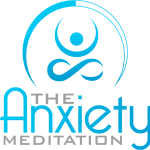All humans irrespective of gender feels anxious from time to time whether it is an event like standing before a mammoth crowd to give a valedictory speech, standing before one’s superior, moving to a new city or even meeting new people. In these cases, anxiety is normal when it falls within the range of mild anxiety but the moment it spirals to an uncontrollable bout, therapies might be the way forward. There are different types of alternative medicine that can be explored for the treatment of anxiety. These treatments are explored to help treat anxiety without the long term expenses of therapy or potential side effects of prescribed medication. The good side of these alternative treatments is that they are all natural and if you are suffering from anxiety or looking for a way to management it, checking out these great ways music can help cure anxiety would be of immense help. Again, I will recommend you check how meditation aids anxiety management as well.
One of the most popular and potent alternative treatment to anxiety is acupuncture. Acupuncture is an ancient practice that involves inserting needles into pressure points on your body. It is becoming a popular alternative treatment for anxiety and a lot of scientific evidence that acupuncture helps with certain symptoms of anxiety exists. This is evident in a research carried out by The Acupuncture Evidence Project in 2017. The research co-authored by Dr John McDonald, PhD and Dr Stephen Janz, showed an up-to-date comparative review of the clinical and scientific evidence for acupuncture. This comprehensive document, updating two previous reviews, determined that acupuncture is moderately effective in treating anxiety according to high level evidence. A review of the study published in 2018 showed that all 13 included studies reported an anxiety decrease for their treatment group relative to the control groups
Benefits of Acupuncture in Anxiety Management
In general, acupuncture relieves pain, reduces inflammation, and restores the body’s natural ability to maintain its health.
• Many studies have shown that acupuncture leads to several biological responses induced mainly by the sensory nerves.
• Acupuncture activates the pathways that affect different systems of the body, including the brain and the nervous system.
• In addition, it has been scientifically proven that chemicals released into the body during acupuncture treatments relieve pain and stimulate the secretion of neurotransmitters and neurohormones related to stress and anxiety.
Also, an acupuncturist focuses on the parts of the body that tend to be the most affected by a particular disease.
• For example, traditional Chinese medicine, which provides the theoretical framework for acupuncture, considers anxiety an imbalance in the heart, kidneys and related organs.
• Therefore, acupuncturists apply needles on points around the heart and kidneys, as well as on the ears and spleen to treat anxiety.
• By stimulating these parts of the body, an acupuncturist can help heal your nervous system.
During an acupuncture session, the acupuncturist will probably tell you that it is important to enjoy the serenity you may feel and focus on evacuating all the negative energy. These “nonspecific” effects play an important role in the healing process. Although the scientific mechanisms behind these effects are not fully understood, they are thought to be linked in your mental processes. Therefore, it makes sense that acupuncture allows for better control over negative emotions and thoughts largely responsible for anxiety.
While it is pertinent for us to understand how acupuncture affects stress, anxiety, researches are showing promising results that acupuncture is becoming a safe and viable option.
 The Anxiety Meditation
The Anxiety Meditation 



